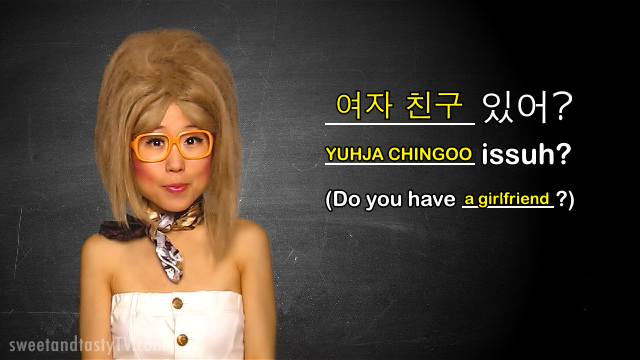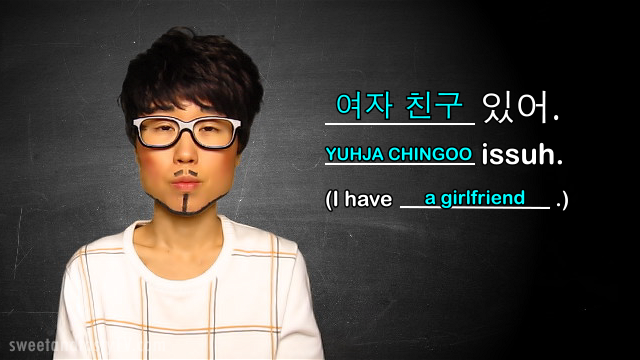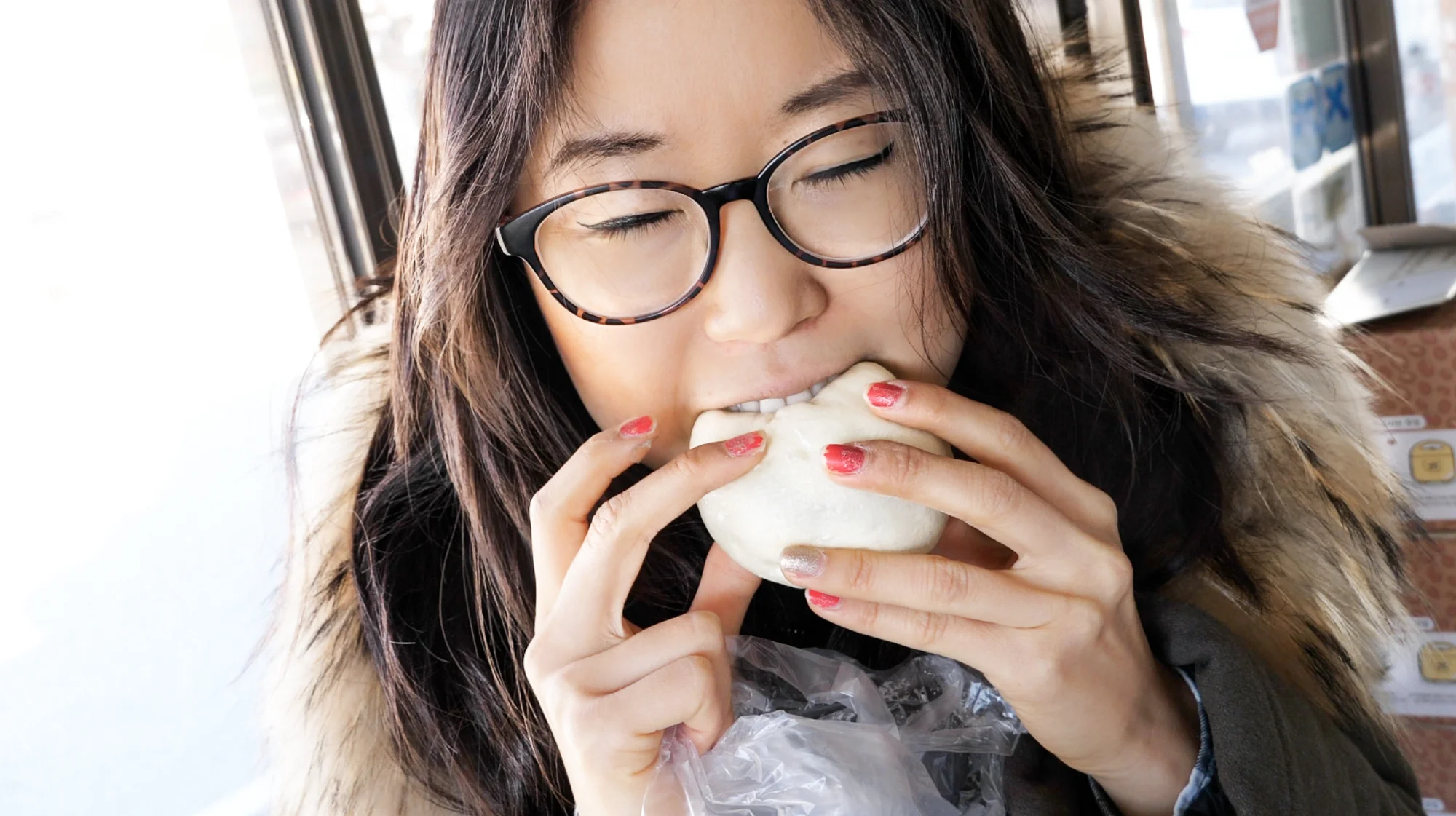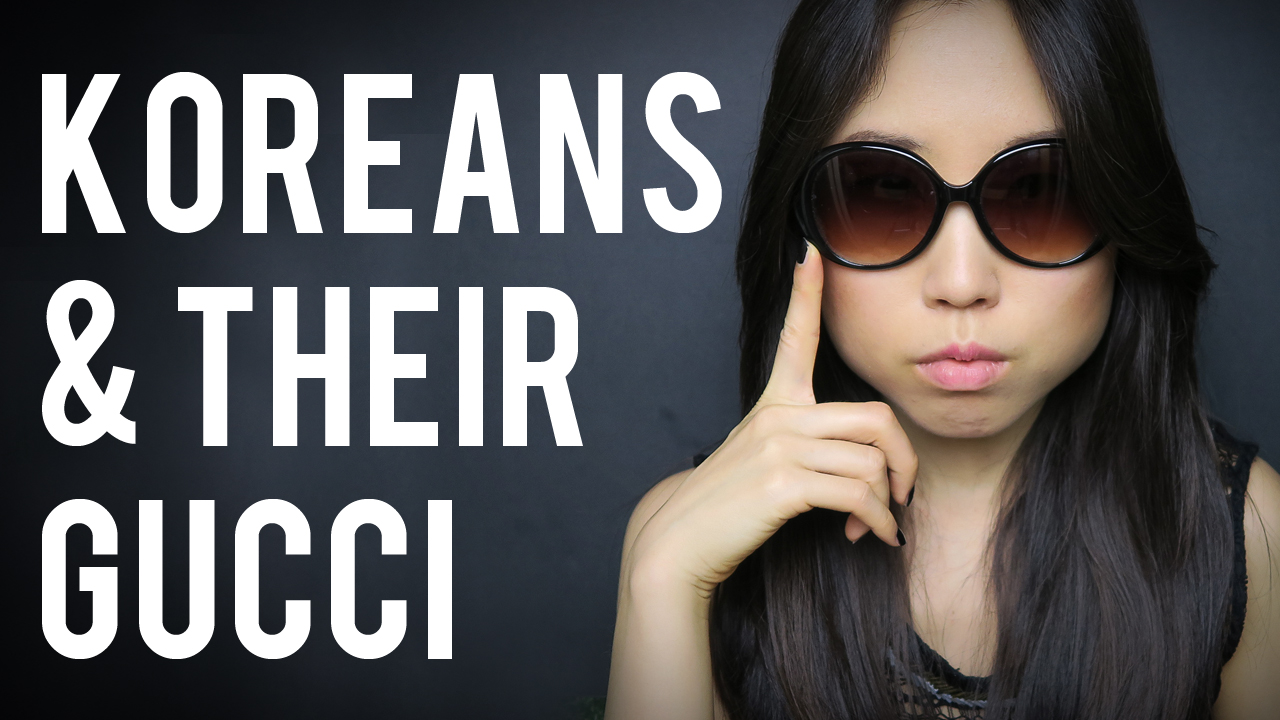Let's say you're walking on a street in Seoul and you suddenly have the urge to use the restroom. Or maybe there's a Korean hottie and you want to know if they're single or taken. Perhaps you saw a cute shirt on display and want to ask if they have one in your size?
Whatever the case, episode 54 of KWOW is your best friend: we're learning about the words HAVE and DON'T HAVE.
Here's the brief review: ISSUH (있어) is the informal way of saying "have" and "is." Issuh is a conjugation of the verb ITDAH (있다), which means "to have" and "to be."
UPSSUH (없어) is the formal way of saying "don't have" and "is not." Upssuh is a conjugation of the verb UPDAH (없다), which means "to not have" and "to not be."
Let's say you're at a bank and want to ask if they have a bathroom.
You say… 화장실 있어요? (Hwajangshil issuhyo?)
Do you have a restroom?
In the previous phrase, issuhyo (있어요) means "have." Remember that issuhyo can also mean "is," depending on the context. Here's an example where the word is used as "is":
화장실이 어디 있어요?
(Hwajangshilee uhdee issuhyo?)
Where is the restroom?
If the person replies, "화장실 없어요" (Hwajangshil upssuhyo), it means "We don't have a restroom." Sorry! Try asking at the cafe across the street. Maybe if you buy some coffee, they'll let you use their restroom.
You are at your friend's birthday party and see a cute boy (or girl). You want to know if they have a girlfriend (or boyfriend). Here's how you would ask:
남자 친구 있어요? (Namja chingoo issuhyo?) Do you have a boyfriend?
여자 친구 있어요? (Yuhja chingoo issuhyo?) Do you have a girlfriend?
If they reply, "여자 친구 있어요" (Yuhja chingoo issuhyo), it means "I have a girlfriend." It's okay. There are plenty of other cuties at the party!
But maybe they instead say, "여자 친구 없어요" (Yuhja chingoo upssuhyo), which means, "I don't have a girlfriend." Ask him on a date to the karaoke and show off the latest dance moves you learned from Girls' Generation. And hopefully he's got some Big Bang dance moves ready for you! Sounds like the beginnings of a potential romance.
NOTE: To speak formally, remember to add YO (요) at the end of the phrases.
Think you can hear ISSUH and UPSSUH within their context? Quiz yourself with these practice questions, then enter our weekly contest. Answers are located at the bottom. No peeking!
Question #1: Where does the first UPSSUH (없어) appear in Beast's "Breath"?
Question #2: Can you find the first ISSUH (있어) in Dalmatian's "E.R."? (You'll also hear UPSSUH in this song.)
Question #3: Think you can find UPSSUHYO (없어요) in Apink's "I Don't Know"? Where?
GRAND FINALE QUESTION #4: How many UPSSUH's (없어) can you find in Huh Gak's "I Told You I Wanna Die"?
ANSWERS BELOW
Answer #1: The first UPSSUH is sung at 2:18.
Answer #2: ISSUH is sung at 0:33.
Answer #3: UPSSUHYO appears at 0:51.
Answer #4: Did you find them all? Post your answer below, along with a fun/crazy/yummy question to Granny Kim. The first *FIVE* people to get the correct answer wins a reply from this week’s KWOW host Granny Kim. No question, no reply. Have fun! :)
ANSWER TO QUESTION #4 REVEALED! (June 26, 2012) UPSSUH is sung four times at 1:02, 1:08, 2:10, and 2:17.















